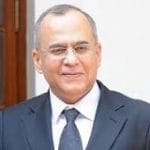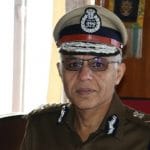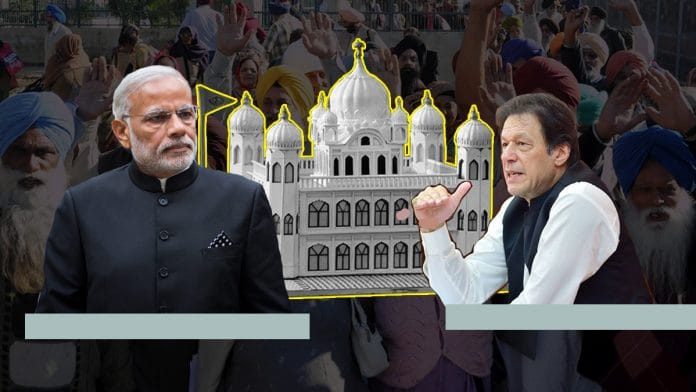In the grand inauguration ceremony of the Kartarpur corridor, Pakistan PM Imran Khan insisted on the Pakistan government and army wanting a civilised relationship with India, and said “If India moves one step forward, Pakistan will move two steps.”
ThePrint asks: Is Kartarpur a good beginning or are we being hasty to conclude Pakistan wants peace?
Kartapur shows Pakistan, India capable of taking realistic & rational decisions
 Salman Bashir
Salman Bashir
Former foreign secretary of Pakistan, and former high commissioner of Pakistan to India
The decision to open the Kartarpur corridor between Pakistan and India is a significant development. It goes to the credit of both the countries to have taken this step at a period when relations seemed to have deteriorated beyond a point of redemption.
True, it is primarily a special gesture for the Sikh community for facilitating pilgrimage to an important shrine. But it also demonstrates that Pakistan and India are capable of taking realistic and rational decisions. Prime Minister Imran Khan has his eye on the big picture. He realises that normalising relations with India is in the interest of the people of the two countries and that we need to take bold and far-reaching steps in this direction.
Given the history of missteps, it is perhaps not possible to read too much or be too exuberant about the prospects of turning a definite corner at this point. Nonetheless, it is a good first step. Corridors are always two-way and in that sense win-win. Successful completion of Kartarpur corridor should encourage contemplating opening of other corridors between the two neighbours.
Establishing corridors for facilitating people-to-people contact and liberalising the visa regime will go a long way in making a meaningful difference to India-Pakistan ties. One hopes that after the general elections in India next year, there would be opportunities to take further steps towards improving the overall climate and prioritising common and shared development as a cherished goal of the two countries.
Pakistan realises that economic and social development must be its strategic priority for which it requires a stable and peaceful environment. Calming the situation on our eastern and western borders is in our national interest. Moreover, the world has moved on. China-Pakistan corridor essentially connotes connectivity. Connectivity matters, and is a logical precursor to enabling South Asia as a whole to develop and be in stride with the trends in the broader Asian region towards shaping an Asian century.
Through Kartarpur, Pakistan is playing with revived Khalistani forces
 Kanwal Sibal
Kanwal Sibal
Executive Council member, VIF and former foreign secretary
India-Pakistan relations have had several “good beginnings” in the past but with no positive ends. Be it the agreement on the Composite Dialogue in the ‘90s, Vajpayee’s bus journey to Lahore, the initiative to hold the Agra summit, the 2004 commitment by Pakistan to eschew terrorism against India, the resumption of the composite dialogue in 2009 after the Mumbai attacks. Or, Nawaz Sharif ’s presence at Modi’s oath-taking ceremony in 2014, exchanges between the two leading to the NSA-level dialogue on terrorism, Modi’s gesture to attend Nawaz Sharif’s grand-daughter’s marriage, Sushma Swaraj’s Islamabad visit and talk of a renewed Comprehensive Dialogue and so on. All this has come to naught because Pakistan is not ready to abandon its sponsorship of terrorism against India.
Kartarpur has many negative faces behind a positive one. It responds, of course, to legitimate Sikh religious sentiments about easy access to the gurdwara there. But India cannot let Pakistan hijack these sentiments at India’s expense, and hence Delhi’s decision to quickly move ahead with the corridor on its own side and attend the ceremony across the border, which inevitably generated speculation about a possible “break-through”.
Through Kartarpur, Pakistan is insidiously playing with revived Khalistani forces campaigning for a referendum on Punjab’s independence. This explains Pakistan army chief Bajwa’s initiative (instead of at the political level) of using a Sikh political maverick to create momentum on the Indian side and place Delhi in a quandary on how to separate Kartarpur and the hype around it, amplified by our invited media, from its stated position of no dialogue without Pakistan eschewing terrorism.
Imran Khan’s mixing of Kashmir and Pakistan’s nuclear capability, his implicit belittling of Narendra Modi by vaunting the leadership of a political entertainer, and resorting to platitudes in his remarks on the occasion do not show that Pakistan really wants peace. For that it has to go beyond tactical manoeuvres. Pakistan’s mindset towards India has to change.
Kartarpur can help the economy of impoverished border provinces
 Farhan Khan Virk
Farhan Khan Virk
Pakistan Tehreek-e-Insaf member and youth activist
In Pakistan, the word Kartarpur means Navjot Singh Sidhu and the Sikh community. For Indians, I guess, it means Khalistan and anti-national Sidhu.
Had a similar initiative been taken in India, most of our Pakistani media would have done the same. War is a commodity to be sold again and again for some “selected” people.
I am a doctor, I administer medicine by checking if benefits outweigh the risks.
Kartarpur is the first gurdwara established by Baba Guru Nanak. When he left this world, there was chaos. Muslims wanted to bury him while the Hindus wanted to cremate. In the night, angels came and lifted the body to prevent religious bloodshed. Half the flowers found on his death bed were cremated and the other half were buried. If Kartarpur became a symbol of Hindu-Muslim unity in the 15th century, then why should we let it remain in the dark now? Maybe, we can witness a similar miracle in India-Pakistan friendship.
The benefits:
*It will strengthen ties between people who are victims of cross-border firing. Last year, 17 people died from the Pakistani side and India’s figures won’t be very different.
*We can embark on a journey like Europe – start with Kartarpur and perhaps end with a peaceful resolution to Kashmir.
*Sikhs gets a chance to visit their historical relics peacefully.
*It will help the economy of impoverished border provinces and boost cultural exchange.
The risks: (As seen by media)
*Pakistan will support Khalistan? Pakistan already hosts thousands of Sikh pilgrims each year. If Pakistan didn’t do it for 70 years, a pilgrim corridor won’t.
*Cross-border terrorism exchanges? But Pakistan is issuing visa-free entry. Sikh pilgrims will enter Pakistan, park their cars at a fixed point near the border, visit the gurdwara in a shuttle. Earlier they went from Wagah to Hasan Abdal and enter Kartarpur after four hours. Now it will be less than an hour.
Kartarpur corridor won’t normalise Indo-Pak ties in days. All good things take time.
Kartarpur bonhomie doesn’t fit into jigsaw puzzle of current status of bilateral ties
 Avinash Mohananey
Avinash Mohananey
Former IB officer who served in Kashmir and Islamabad
The bonhomie between India and Pakistan on the Kartarpur corridor is a welcome development, but somehow does not fit into the overall jigsaw puzzle of present status of bilateral relationship. The agreement no doubt is a high point in the roller coaster relationship between the two countries. But so was Lahore bus yatra in February 1999, which was soon followed by Kargil.
Nevertheless, both prime ministers need to be lauded for breaking the shackles of diplomatic and bureaucratic chains and bitterness of past. More so after the acrimonious exchange of tweets sometime back, wherein Imran Khan had personally tweeted harsh words against Prime Minister Narendra Modi.
If the bonhomie has to be sustained, both the countries will have to address issues and concerns dear to the other side. Otherwise, as in the past, the initiative will flounder and be devoured by domestic electoral considerations.
Coming close on the heels of the 10th anniversary of Mumbai serial attacks, some words of comfort about punishing the perpetrators from Imran Khan will provide space to Indian leadership to move forward. This should not be difficult, if Imran Khan is to be believed that Pakistan Army is on the same page with civilian leadership on relations with India. Similarly, from Indian side, there is an urgent need for revisiting the policy being presently pursued in Kashmir.
At this stage, it is difficult to say that both countries have genuinely realised the futility of confrontation and that the two neighbours need to live in peace and harmony. Nevertheless, it is time that both sides should nurture the nascent process that they have set in motion.
Kartarpur by itself won’t improve ties between India and Pakistan
 Lalit Mansigh
Lalit Mansigh
Former foreign secretary and ambassador to the US
The opening of the Kartarpur corridor is a good initiative and must be appreciated. It has been a long-pending demand, and should help in building people-to-people ties. To that extent, I will give credit to Imran Khan for responding to our demands. But Kartarpur corridor, by itself, will not lead to improvement in ties between the two nations.
Having dealt with Pakistan for a long time, when I was in service, and then being a part of track 2 diplomacy meetings for long, I see nothing new in Imran Khan’s speech. These hopeful and forward-looking gestures have been attempted in the past too, but to no avail.
During Pervez Musharraf’s term in office, India and Pakistan almost came to a settlement on the Kashmir issue, but eventually didn’t. Similarly, Nawaz Sharif, while campaigning for the prime ministerial elections, too had claimed he wants peace with India. This was followed by Prime Minister Narendra Modi visiting him as well, but eventually we fell back to the pattern of terrorist attacks.
Imran Khan doesn’t have any particular track record for wanting peace with India. In fact, he even criticised Nawaz Sharif for being too friendly with us. He won the elections through the support of extremists, and has not once condemned terrorist activities by Pakistan.
Moreover, Imran Khan as the Pakistani PM doesn’t get to decide the policies. It is the Pakistani army which does. There is no question of any real talks, given how India wants to discuss terrorism and Pakistan wants to discuss Kashmir.
Attendance of ministers from Pakistan and India show how differently both countries saw Kartarpur
 Ammara Ahmad
Ammara Ahmad
Lahore-based writer
The idea of building the Kartarpur corridor has been there for nearly two decades, and seeing it materialise on Guru Nanak’s 550th birthday is an incredible experience. The Sikh community can get visa-free access to the grave of their first Guru for the first time since Partition.
A documentary was played before PM Imran Khan’s address at the groundbreaking ceremony and there were promises to develop the area. They will build a hospital, hotel, add buildings to the gurdwara (which is tiny for a gurdwara of international significance) and even a library.
The central BJP leadership was absent from the ceremony, while the Pakistani side had the Prime Minister, army chief , foreign minister and many other ministers there to mark the achievement. This shows how differently the two countries perceive this achievement. This news is being underplayed in the Indian media and cynicism has already crept in. However, this is a step forward. Peace between two countries becomes inevitable when there is people-to-people contact and mutual cooperation on issues. The development of the Kartarpur Corridor will help with just that.
The Pakistani government has invited 25 journalists from India, and hopefully, they will help in sending out this news to the Indian public. The Pakistani establishment has successfully broken the Indian narrative of “non-ties or cooperation with Pakistan” and taken a step towards dialogue and peace.
By Fatima Khan, journalist at ThePrint. You can follow her on twitter @khanthefatima.







One needs to believe to succeed. Unfortunately we have on both sides people who have not seen partition or were never even remotely involved in it and have radical views about the two countries.
Points raised by Mr. Farhan Khan Virk are no doubt correct..Issue of Terrorisom taken by India is actually way out of talks and peace. Let the people come close and open new opprtnities
Farhan virk?
Kartarpur Corridor is very plausible step from Pakistan’s side. But India has showed its psychopathy again.
Pakistan wants to solve conflicts and issues through the channels of negotiations and peaceful means. But India is not agree to sit on the table. Don’t know why. Maybe they don’t have arguments for what they have done in the past.
The reason being in past everytime we wanted peace you guys sent terrorists in our country. How can we believe you this time?